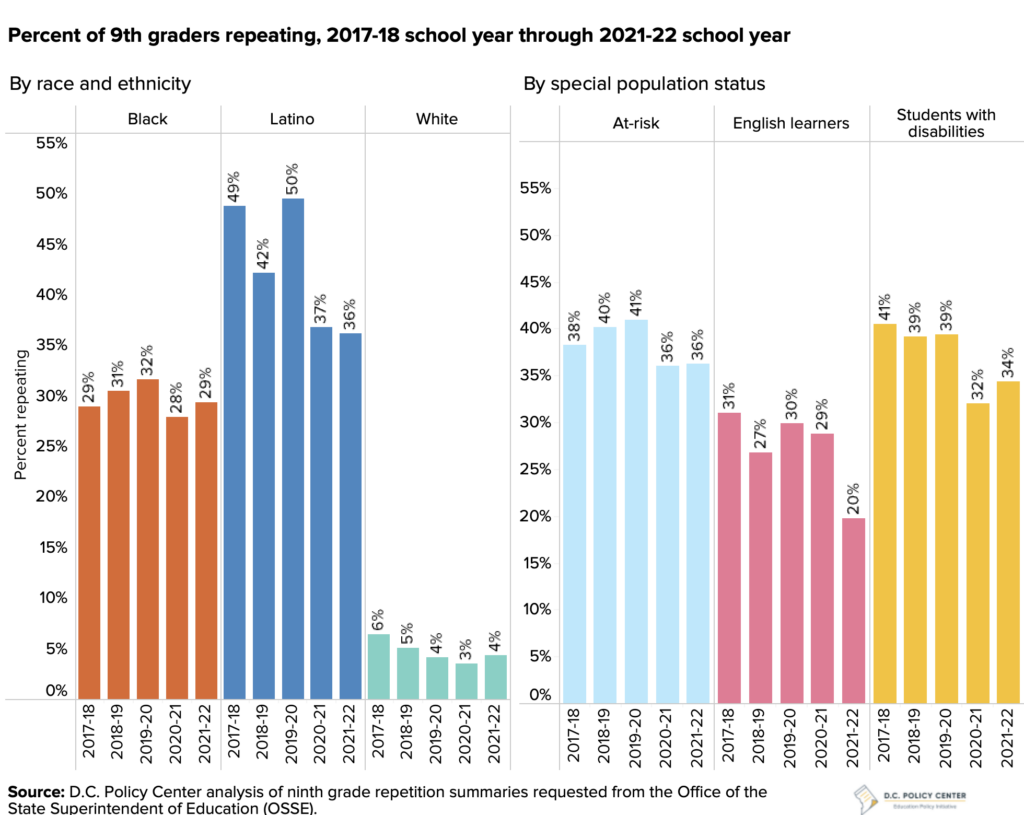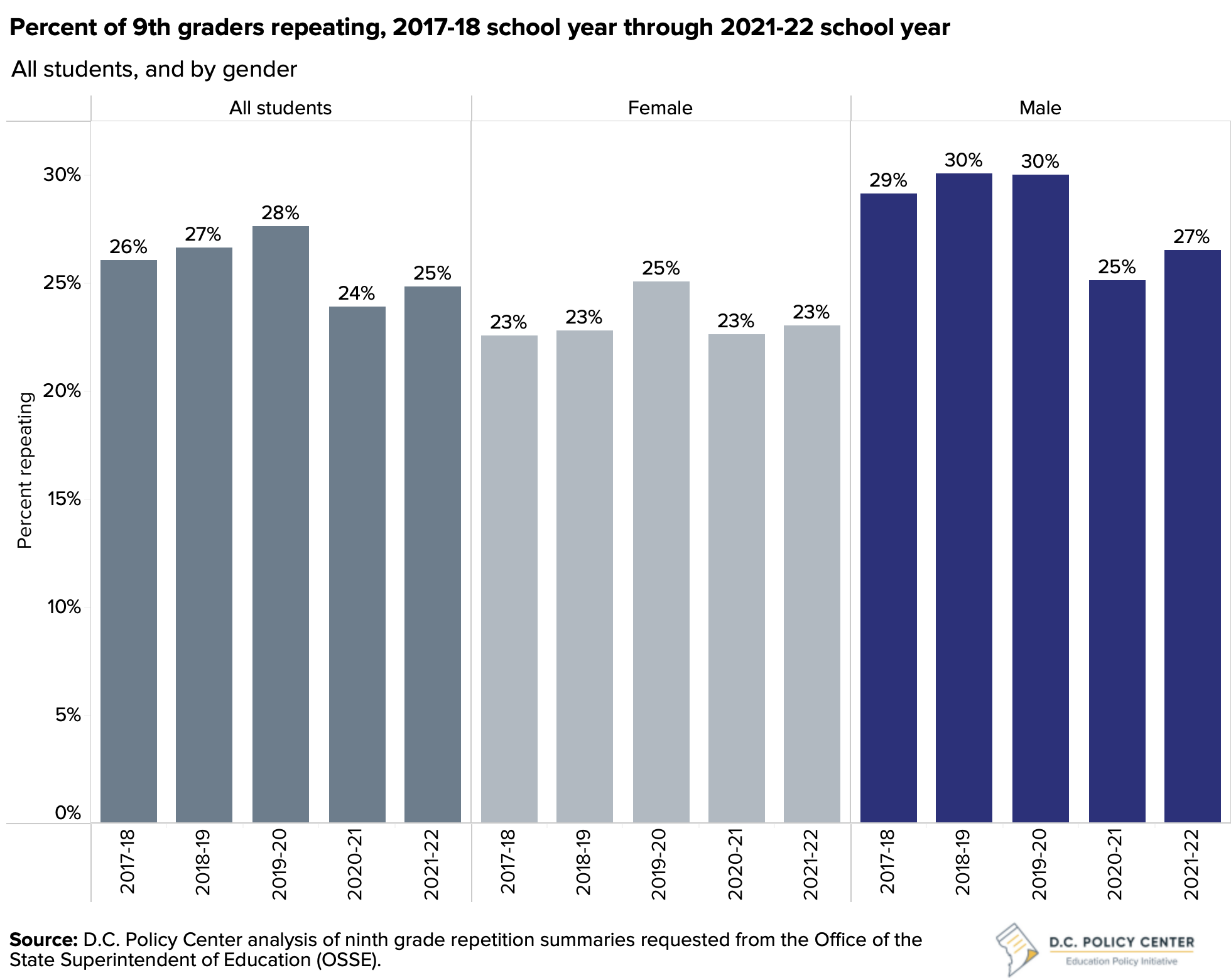Pandemic recovery has been a huge challenge for schools and students, and every cohort experienced the two years of disruption differently. Some things that happened in the first two years of the pandemic have continuous impacts that we are just beginning to understand.
One such systemic change is the decline in 9th grade repetition. Typically, repetition tends to be very high among 9th graders. This is because it is the first year where grade promotion depends on specific quantifiable metrics. School policies vary, but high school students generally need to accumulate a certain number of credits to be promoted to the next grade.1
Before the pandemic, 9th grade repetition was on the rise. In school year 2019-20, 28 percent of all ninth graders were repeaters. In school year 2021-22, that share fell to 25 percent. This is likely due to the relaxation of related requirements around grading and attendance during the pandemic, which made it easier to earn the requisite credits for grade promotion. 2
Declines in grade repetition are more likely to due to these rule changes than achievement because we have not seen academic growth and recovery for high school students in the last two years. 3
Student groups who receive additional funding supports were more likely to see large decreases in repetition. For example, 9th grade repetition for English learners was cut back by a third (declining from 20 percent to 10 percent). Repetition among at-risk students and students with disabilities declined by 5 percentage points (a one-sixth decline). Latino students experienced a large decline of 14 percentage points.

On the surface, more students passing ninth grade is a positive outcome, but it is one of many areas of education that shifted during the pandemic. Chronic absenteeism is higher, especially for high school students, than pre-pandemic. And even through D.C. students are graduating high school at higher rates, enrollment in postsecondary institutions and completion declined during the pandemic.4
Most students who were in these 9th grade cohorts are now juniors and seniors, and impacts are likely to continue for them. It is really important to support these students through rigorous programs such as high-impact tutoring, and increased interventions and supports. Schools have access to ESSER funds for the last time this school year, and their investments will hopefully make a difference in academic outcomes in addition to promotion.
Endnotes
- District of Columbia Municipal Regulations. Education -Grades, Promotion, and Graduation, 5-E DCMR § 2201. 2014. Retrieved from https://dcregs.dc.gov/Common/DCMR/RuleList.aspx?DownloadFile=3090545F-0000-C4A0-988E-F9DBFE0A46E3/.
- D.C. Policy Center. 2023. State of D.C. Schools, 2021-22. Retrieved from https://www.dcpolicycenter.org/publications/schools-21-22/
- Coffin, C. 2023. Chart of the week: New PARCC data show overall gain for DC students last year—but high school progress remained flat. Retrieved from https://www.dcpolicycenter.org/publications/parcc-data-gains/.
- D.C. Policy Center. 2023. State of D.C. Schools, 2021-22. Retrieved from https://www.dcpolicycenter.org/publications/schools-21-22/.
